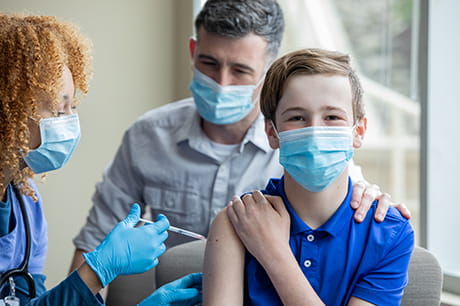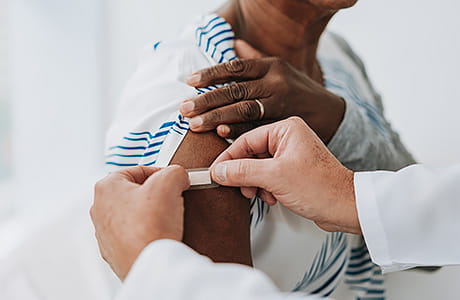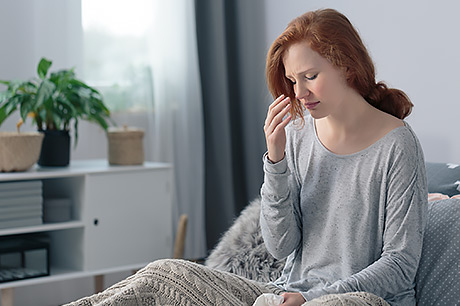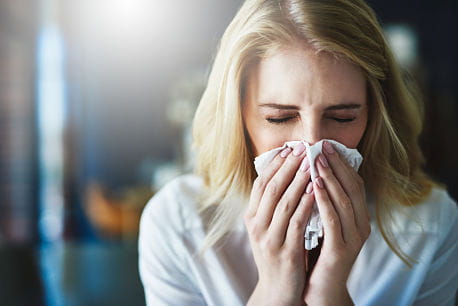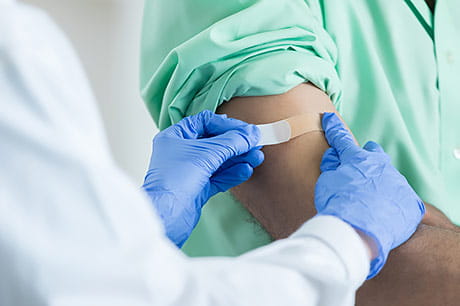Does my child need a COVID-19 vaccine?
Have questions about getting your kid vaccinated against COVID-19? We asked a pediatrician for answers.
Thinking about protecting your child against COVID? With Pfizer’s COVID-19 vaccine approved for those age 12 and older, and several companies studying vaccine use in younger children, you may be weighing the options — and wondering if it’s safe.
Wonder no longer. “Not only is the vaccine safe for children and teens, but vaccination is the best way to protect ourselves and our families,” says Dr. Stacey Cummings, pediatrician at Geisinger.
Here’s what you need to know about kids and the COVID-19 vaccine.
Is the COVID-19 vaccine safe for kids?
As a parent, you’re right to have concerns about your child’s safety. And that’s exactly why it’s important to vaccinate them. Vaccines protect us against many diseases, and the COVID-19 vaccine is no different.
“This particular vaccine may be new, but the mRNA technology used to develop the COVID vaccine has been studied for decades,” says Dr. Cummings. “In addition, these vaccines have undergone — and will continue to undergo — rigorous testing and monitoring, just as all other vaccines have before becoming available to the public.”
In fact, Pfizer released results from a vaccine trial of over 2,000 participants age 12 to 15. Among the fully vaccinated children, there were no cases of COVID-19, while there were 16 cases among those who received a placebo. “Clinical trials of the Moderna vaccine in children age 12 to 15 have shown similar results,” adds Dr. Cummings.
So far, no significant safety concerns have been reported. “The findings to date give us confidence in the vaccine’s safety and efficacy in those age 12 to 15,” adds Dr. Cummings. “Children will continue to be monitored, and data reviewed, after vaccination to understand side effects and their relationship to the COVID vaccine.”
Which side effects should I look for after my child gets the COVID-19 vaccine?
Your 12- to 15-year-old will receive the same Pfizer COVID-19 vaccine and dosage (administered in two doses) as adults do. And it’s likely they’ll have side effects similar to what an adult would.
“Side effects may include pain at the injection site, fever, chills and fatigue, particularly after the second dose,” explains Dr. Cummings. “Or your child may not experience any side effects at all. But if they do, they should be feeling back to normal within a few days.”
Side effects are normal, and in fact they’re a sign that your child’s body is building protection against COVID. “Contact your child’s pediatrician for advice on easing any discomfort at home,” says Dr. Cummings. “For example, a non-aspirin pain reliever, like acetaminophen or ibuprofen, should help relieve any aches and mild fever.”
Does the COVID-19 vaccine cause myocarditis?
You’ve likely heard about the small number of children and adolescents who have experienced mild heart inflammation, called myocarditis and pericarditis, after getting the COVID-19 vaccine. “There have been about 1,000 cases out of more than 26 million doses given to young people,” says Dr. Cummings. “Of these cases, the vast majority completely recovered with monitoring, minor treatment and rest.”
Despite this finding, the benefits of getting vaccinated overwhelmingly outweigh any potential risks for most children. COVID-19 itself is shown to cause myocarditis and potentially more severe illness in young, healthy people that could lead to heart and other organ damage.
“There are possible complications with any vaccine administered to adults and children alike,” she says. “However, the data shows that these complications are very rare — and the risk of being infected with COVID-19 is far more serious.”
Still have questions or concerns about the COVID vaccine? Talk to your pediatrician. They’re a great resource when it comes to your child’s health and well-being.
Why does my child need the COVID-19 vaccine?
Though your child is less likely to be infected with COVID than you are as an adult, it’s still possible for them to get it and spread it to others. And that’s especially concerning if they’re around more vulnerable family and community members.
“Getting your child vaccinated not only protects them from COVID-19 and potentially serious complications like multisystem inflammatory syndrome in children [or MIS-C], but it also protects those around them,” says Dr. Cummings.
Preparing for your child’s COVID vaccine appointment
Though it’s tempting to give your child a pain reliever before their vaccination appointment to prevent any potential side effects, don’t do it. “It’s best to treat any potential side effects afterward,” says Dr. Cummings.
After your child’s COVID-19 vaccination, they’ll need to stay for an additional 15 to 30 minutes to be observed for any allergic reactions. And before you leave, your child’s second dose will be scheduled. Be sure to keep this appointment and remember: your child isn’t considered fully vaccinated until 2 weeks after their second dose
It’s normal to have questions about a new vaccine. But you can be confident that the COVID-19 vaccines are safe — and they’re working. “If we continue to work together by getting vaccinated and taking recommended precautionary measures, we can put an end to this pandemic,” says Dr. Cummings. “Returning to regular routines and activities will be good for all of us, and especially our children.”
The information in this article is current as of July 6, 2021. On June 10, Moderna filed for emergency use authorization with the U.S. Food and Drug Administration for its vaccine’s use in those age 12 to 17.
Visit geisinger.org/COVIDVax for the latest COVID-19 vaccine information.
Next steps:
